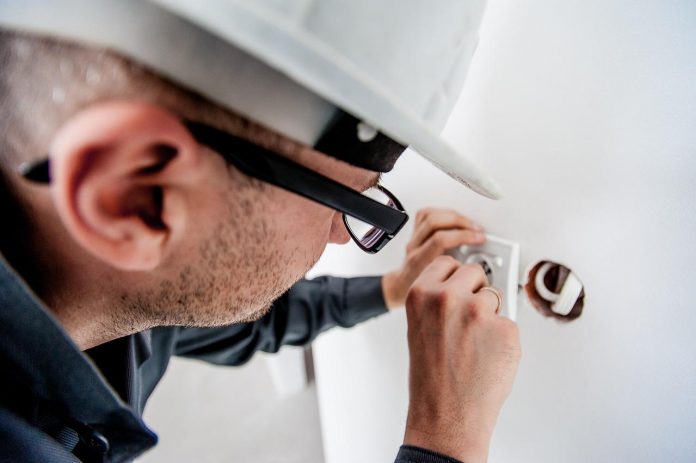The role of an electrician can be a very varied and exciting one. It offers plenty of opportunities for you to work in both the domestic and industrial space.
Depending on the nature of your role, you could find yourself doing tasks such as wiring domestic houses, offices or retail stores. Alternatively, you might be taking on more complex tasks, such as maintaining industrial plants or power stations.
Plus, as well as being a fast-paced and important job, average salaries are also pretty impressive across the industry. In 2022, the average wage of a fully qualified electrician was around €48,000, with the possibility to be even higher in more technical positions.
Even an apprentice can earn a decent average wage of around €30,000 a year. Though again, this will depend on several factors, including where you live and work.
Taking all of this into account, it’s easy to see why you might be attracted to the electrical industry and why you might be considering steering your career in this direction.
But what qualifications and skills do you need, and how do you get started in your first electrician role?
Well, it doesn’t happen overnight, but it’s certainly a promising career path and one worthy of your time.
In this guide, we’re going to talk you through how you can become an electrician, looking in more detail at the qualifications you need and how to secure your first apprenticeship.
How to start your electrical career
The process of becoming an electrician has changed slightly in recent years as the Funding Apprenticeships Systems (FAS) no longer exists. However, the fact still remains that you need to complete an apprenticeship if you want to become a fully qualified electrician.
In order to get an apprenticeship, you need to meet certain criteria. Firstly you need to be a minimum age of 16, as businesses cannot hire an apprentice that is below this age by law.
Next, you need to have the right qualifications or experience to be accepted into an apprenticeship. The minimum requirements are:
- At least five grade D (or achieved) in your GCSEs or equivalent. Although you can get away with any five GCSE subjects, it is advantageous to have experience in maths, technology, physics or construction topics
- Alternatively, if you don’t have the grades, you may have successfully completed an approved pre-apprenticeship course
- Finally, if you don’t have any of the above, you can still be accepted into an apprenticeship if you have at least three years work experience gained in a relevant designated industrial
It’s important to note that on this last point, your experience must be deemed acceptable by SOLAS; this is the state agency that deals with higher education and training. You must also be over the age of 16 when you first started your work experience.
Where to find an apprenticeship
If you tick all the right boxes, you then need to look for the right position. The great news is that there are plenty of excellent resources out there that can help you to find your electrician apprenticeship.
Firstly, as a school or college leaver, it’s likely that your educational establishment will be able to provide you with some information on apprenticeships. They might even be able to put you in touch with potential employers in your local area.
Some of the other great ways that you can find an apprenticeship include:
- Use the government website, which gives advice and links to the apprenticeship resources page
- Using professional job sites like Indeed or CV-Library, where employers can list their availability to take on an apprentice
- Check out the UCAS website for advice on the best apprenticeships in your area
- Go old school and ask around local employers in the industry to see if they are qualified to take on apprentices or if they know anyone who can/wants to
You should treat your search for an apprenticeship like you would any other job search. This means you need to carefully consider all of your options.
To do this, don’t rush your research and be sure to look at several different apprenticeships before settling on the one that’s right for you. After all, you want to make sure you choose a job and educational program, as well as an employer that will offer you the best possible opportunities for your future.
What happens after you find an apprenticeship?
Unfortunately, you can’t just work for anyone you want. Instead, you need to find an employer who has been approved to train apprentices as electricians. Then, once you have obtained an apprenticeship, your new employer must register you as their apprentice within two weeks of your recruitment.
This means they need to fill out an apprentice application for you that requires you to pass a colour vision test. This must be conducted by a SOLAS approved test provider.
When everything has been approved, and you’ve been fully onboarded, your apprenticeship can begin. During your time within the company, you will be able to earn while you learn and depending on the position you take, there are serval different ways you will do this.
Your employers will teach you most of the practical skills you need, and you will learn whilst on the job. However, some of the other modules and key information will be delivered through training centres or in education classrooms at the local college or university.
You must complete all stages of your learning if you hope to become a fully qualified electrician.
Receiving your qualifications
Finally, once you have completed your four-year apprenticeship, you will receive certification that you are a fully qualified electrician. This means you can now go to work for someone else or even start up your own company if that is what you want to do.
That being said, if you want to go into electrical engineering or something more complex, then you may need to further your education and training through a relevant degree. For example, your next step might be enrolling in an electrical engineering degree.











